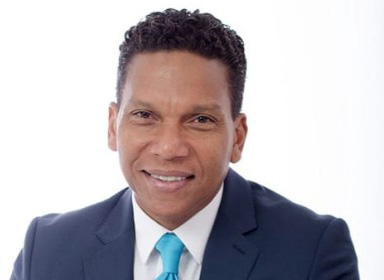BRIDGETOWN, Barbados, CMC – Jamaican businessman and former cricket executive, Chris Dehring, believes Cricket West Indies’ delay in renewing its broadcast rights deal will prove a stumbling block when they eventually approach a market reeling from the fallout from the novel coronavirus pandemic.
CWI’s rights deal expired last December and CWI are yet to conclude negotiations on a new long-term deal, despite entering the market a year ago.
Dehring, a former leading marketing executive with the regional governing body, said the chaos created by COVID-19 had created such a high level of uncertainty that CWI would find great difficulty negotiating deals in coming months.
“Right now, not having a television agreement, I think you’re much worse off than having a television agreement,” said Dehring, a key figure in helping the Caribbean deliver the 2007 Cricket World Cup when he served as chief executive of the organising committee.
“It is much easier to try and negotiate or fight off somebody trying to reduce it on you versus now having to go into the market where there’s so much uncertainty.
“First of all, to get people to come to the table is going to be difficult, even if you have the greatest deal on the table – whether it’s England coming here or India coming here and you want to sell back television rights into those markets – the challenge is everybody is so uncertain, nobody wants to move.
“You have oil being sold at minus-40 dollars a barrel – imagine that. So this is not the time to be out of contract so they (CWI) really had bad luck there or bad planning.”
Only recently, CWI president Ricky Skerritt said the absence of a broadcast deal had contributed to the organisation’s lean finances and left it badly disadvantaged.
Also, the former St Kitts and Nevis cabinet minister conceded CWI had only begun negotiations around the time he assumed office last year March, which had been a less than ideal situation for the board.
“We’ve not had enough time in the market and to make it worse, the market has become very, very uncertain,” Skerritt said in a recent interview.
“So revenues which under normal circumstances we would have already begun collecting from broadcast rights, we have not done as yet.”
Dehring, co-chief executive of Ready TV in Jamaica, contended that timing was always key when negotiating rights deals, especially since the market often suffered from unforeseen shocks which could impact the worth of the deal.
“I have not been in the television rights sales in the international market in a while but there are certain experiences that I had and lessons that were taught, one of which I totally lucked out on,” the Jamaican told the Mason and Guest cricket radio show here.
“It was hailed as a brilliant deal but to be brutally frank it was so lucky because of the circumstances.
“When we (West Indies Cricket Board) did that rights deal with Sky back in 1998, we went early to the market mainly because we were in a dire financial situation. We were desperate, we wanted to conclude some things fast to get some funding up front.”
He continued: “About six months after we signed that deal we had the ‘dot.com’ bubble bursting and all of a sudden, television rights for sports was depressed because a lot of what had been fueling television rights was advertising by all these ‘dot.coms’ that had come to the fore.
“So timing is something you can luck into or you can plan it.”
The cash-strapped CWI faces an uncertain period especially with the COVID-19 pandemic having disrupted cricket worldwide and already forced the postponement of the three-Test tour of England scheduled for June.
Further, money-spinning visits from New Zealand and South Africa between July and August are both now in jeopardy, with the pandemic showing no sign of abating.

